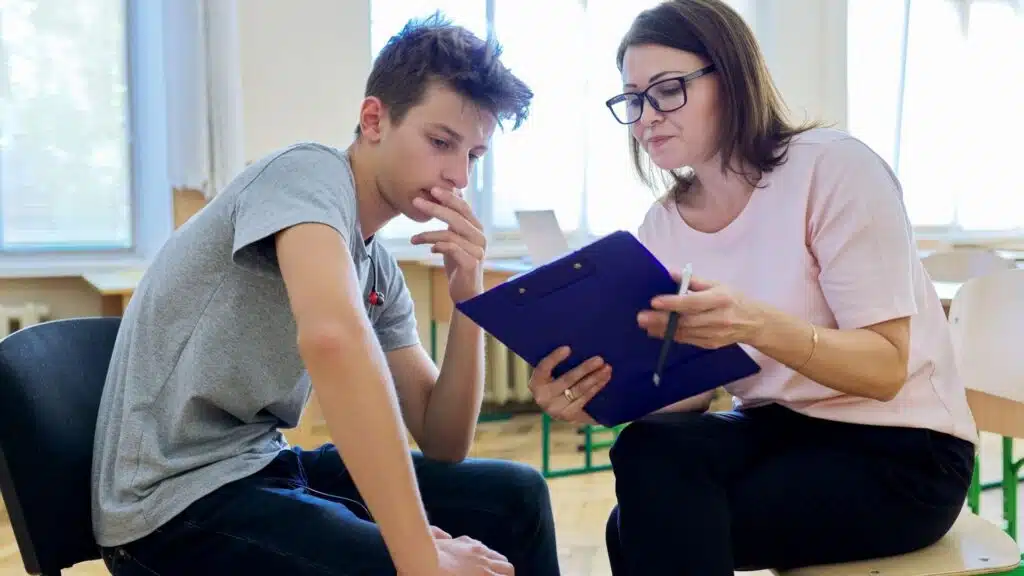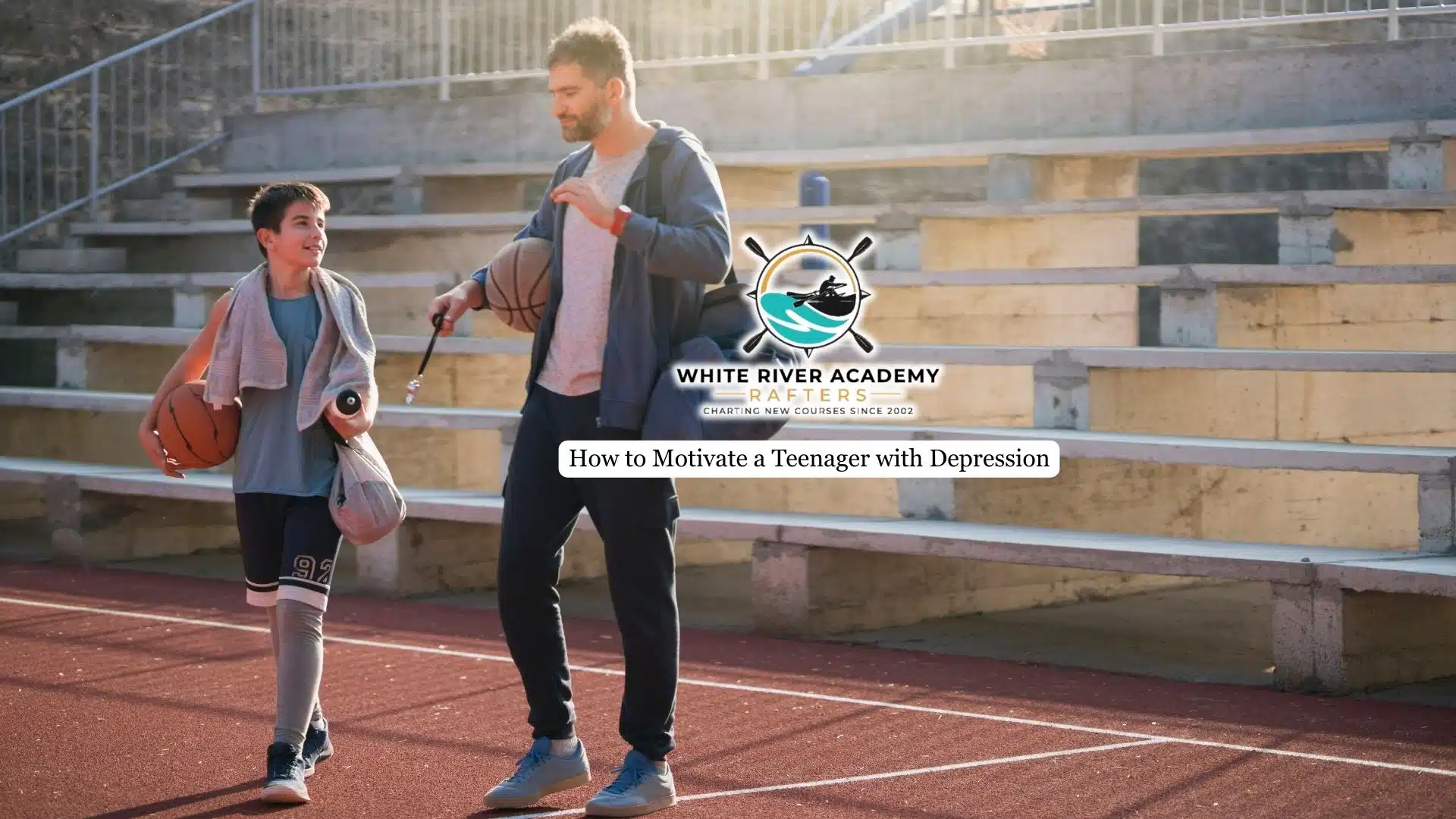Supporting a teenager with depression can feel overwhelming, especially when motivation is low and daily routines seem like uphill battles. Parents and caregivers often struggle to balance encouragement with understanding, unsure how to help without adding pressure.
This article explains practical ways to motivate a vulnerable young person living with depression while respecting their mental health needs.
Understanding Depression and Motivation
Depression impacts far more than mood—it can drain energy, diminish interest in once-loved activities, and interfere with concentration. For adolescents, these struggles often appear as fatigue, irritability, or withdrawal from school and friends. Lack of motivation is not laziness but a symptom of the condition.
Recognizing this distinction helps parents approach their child with empathy instead of frustration. When caregivers understand that depression alters brain chemistry and thought patterns, they can encourage without blame, which creates space for progress.
Comprehensive motivational therapy for teens, whether individual counseling or group sessions, can be a valuable step in reinforcing these efforts, giving young people structured tools to cope and an outlet to process what they are experiencing.
Building a Supportive Environment
A consistent and nurturing environment allows your child to feel safe enough to attempt small steps forward. Simple adjustments—such as maintaining predictable routines, offering a listening ear, and showing patience—can provide stability during difficult times. Encouraging open communication allows them to share feelings without fear of judgment.
Parents who validate emotions rather than dismiss them foster trust, which is critical when motivation is fragile. Even on hard days, knowing that support is reliable can help them feel less isolated. Small gestures, like spending quality time together, creating calm spaces at home, or encouraging positive sibling interactions, can add comfort.
Setting Achievable Goals
Large tasks often feel overwhelming for adolescents. Breaking goals into smaller, manageable steps reduces pressure and helps them see progress more clearly. For example, instead of focusing on completing all homework at once, encourage them to finish one assignment or one subject at a time. Celebrating these small victories reinforces their efforts and builds confidence.
This gradual approach restores a sense of capability and prevents the discouragement that comes from setting unrealistic expectations. Consistent success with smaller tasks strengthens resilience and increases motivation. Goal setting also teaches valuable life skills such as planning, prioritization, and patience, which remain useful beyond the recovery process.
Encouraging Healthy Routines
Sleep, nutrition, and physical activity all influence mood, energy, and focus. Parents can support their teen through modeling balanced routines and gently encouraging involvement in healthy habits. Simple actions such as walking together, preparing a nutritious meal, or practicing mindfulness exercises can rebuild energy levels.
Even modest activity improves mood regulation and provides a natural sense of accomplishment. Establishing these patterns also creates structure, which is often comforting when depression makes life feel unpredictable. Including calming routines like journaling before bed or short breathing exercises can further reduce stress and help regulate emotions.

Supporting Engagement in Interests
Reintroducing enjoyable activities helps counteract the apathy associated with depression. Youngsters may need reminders of what they once enjoyed, whether that’s music, sports, or spending time with friends. Encourage participation without pressure and respect their pace. Even small steps, like listening to favorite music, journaling, or sketching for a few minutes, can spark moments of joy.
Parent behaviors that emphasize encouragement rather than control allow their kid to reconnect with personal interests in ways that feel natural and empowering. Involvement in structured extracurriculars, such as clubs, volunteering, or creative art programs, can also strengthen social confidence and provide a sense of belonging while keeping them connected to positive peer groups.
Encouraging Social Connections
Isolation often deepens depressive symptoms, yet social support can play a key role in motivation. Teenagers may withdraw because of low energy or feelings of hopelessness, but gentle encouragement to connect with trusted peers or supportive family members can help. Creating opportunities for low-pressure interactions—such as a brief visit with a friend, a family game night, or volunteering in a community activity—can gradually reintroduce social engagement.
These connections remind your kid that they are valued and not alone in their struggles. Positive social experiences also help them practice communication and teamwork skills that boost confidence and support emotional growth.
Knowing When Professional Help Is Needed
While parental support is essential, depression often requires professional intervention. Therapists, counselors, and treatment programs provide structured coping strategies and safe spaces for self-expression. Parents should stay alert for warning signs such as worsening mood, frequent withdrawal, or expressions of hopelessness. Seeking help promptly ensures that they receive the comprehensive care they need to develop lasting skills and restore motivation.
Professional guidance offers both the teen and their family a roadmap for navigating challenges that feel overwhelming. Evidence-based therapies such as Cognitive Behavioral Therapy (CBT) give adolescents practical tools to challenge negative thinking, strengthen coping skills, and regulate emotions. For some, combining therapy with academic support, holistic approaches, or placement in a therapeutic boarding school can create a more complete path toward recovery and long-term stability, as these programs integrate academics with mental health care in a structured and supportive environment.
Final Thoughts from White River Academy
Motivating a teenager with depression requires patience, empathy, and consistent support. Progress usually happens through small, steady steps, and celebrating these efforts can encourage resilience and healing. Parents play an essential role in creating a supportive environment that fosters hope and growth.
At White River Academy, we specialize in helping adolescents work through the challenges of depression with evidence-based therapies, academic structure, and compassionate care. Our therapeutic programs in Utah guide young men toward healthier routines, emotional strength, and renewed motivation. Families seeking dependable support can trust our expertise and dedication to adolescent mental health.




